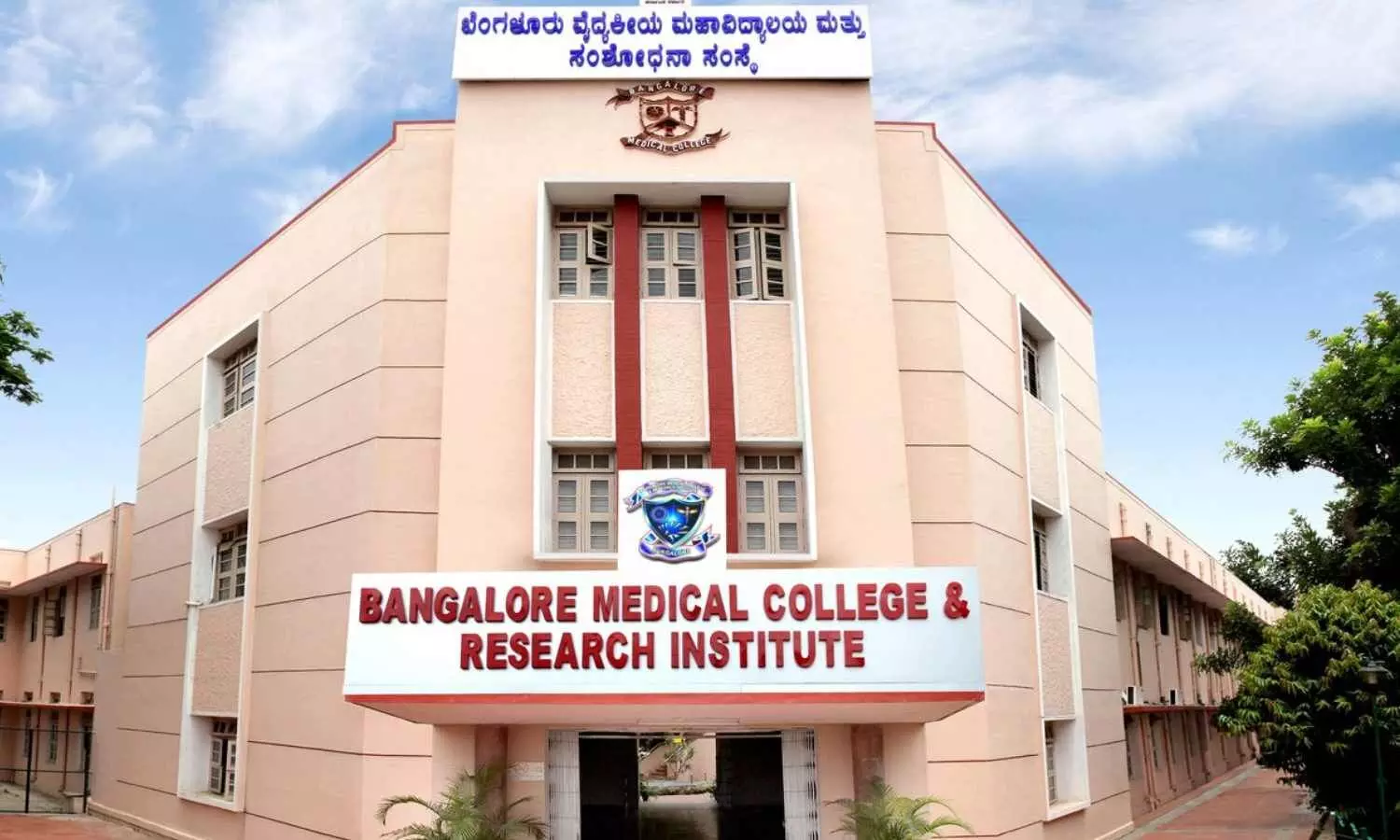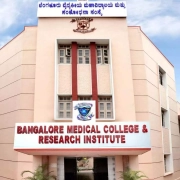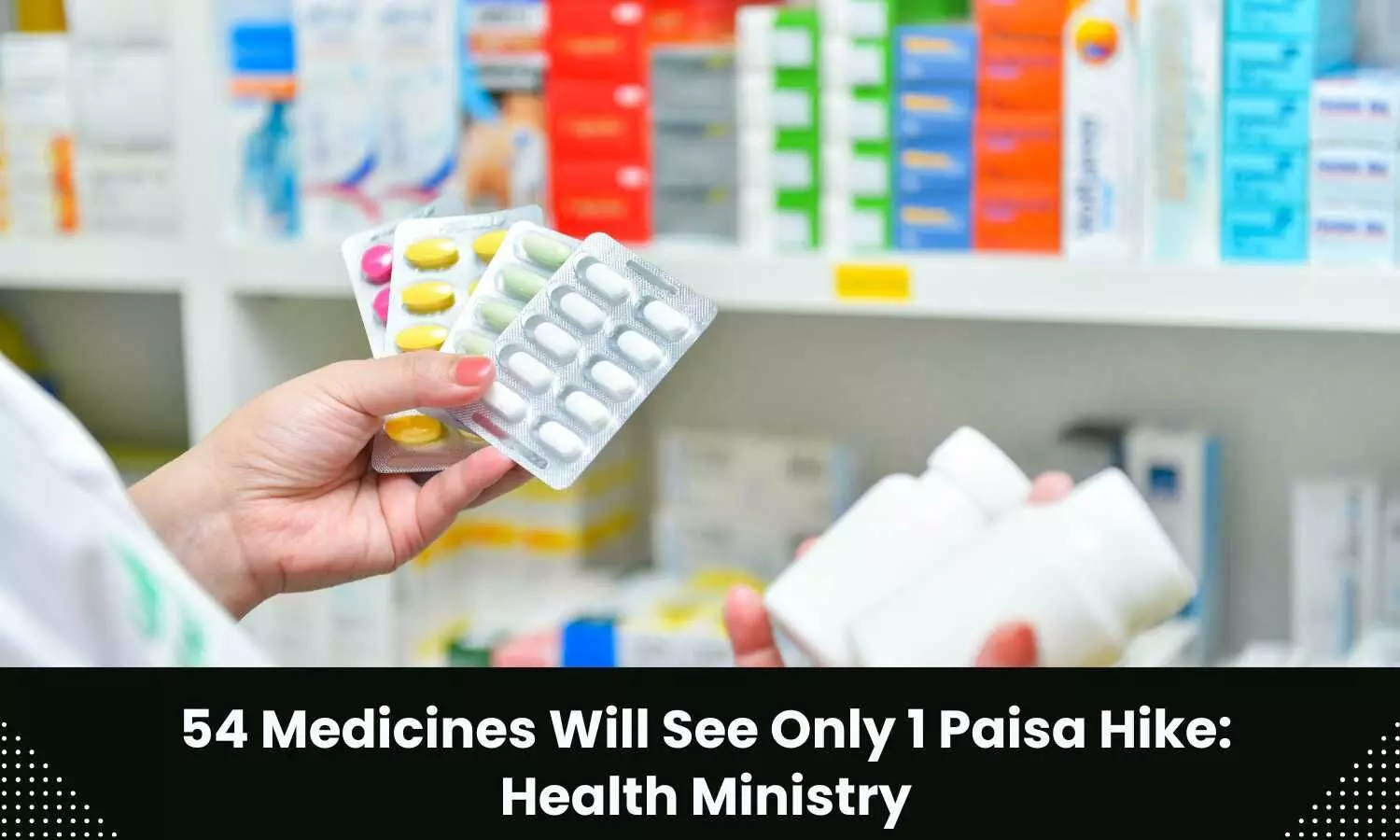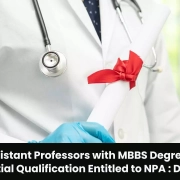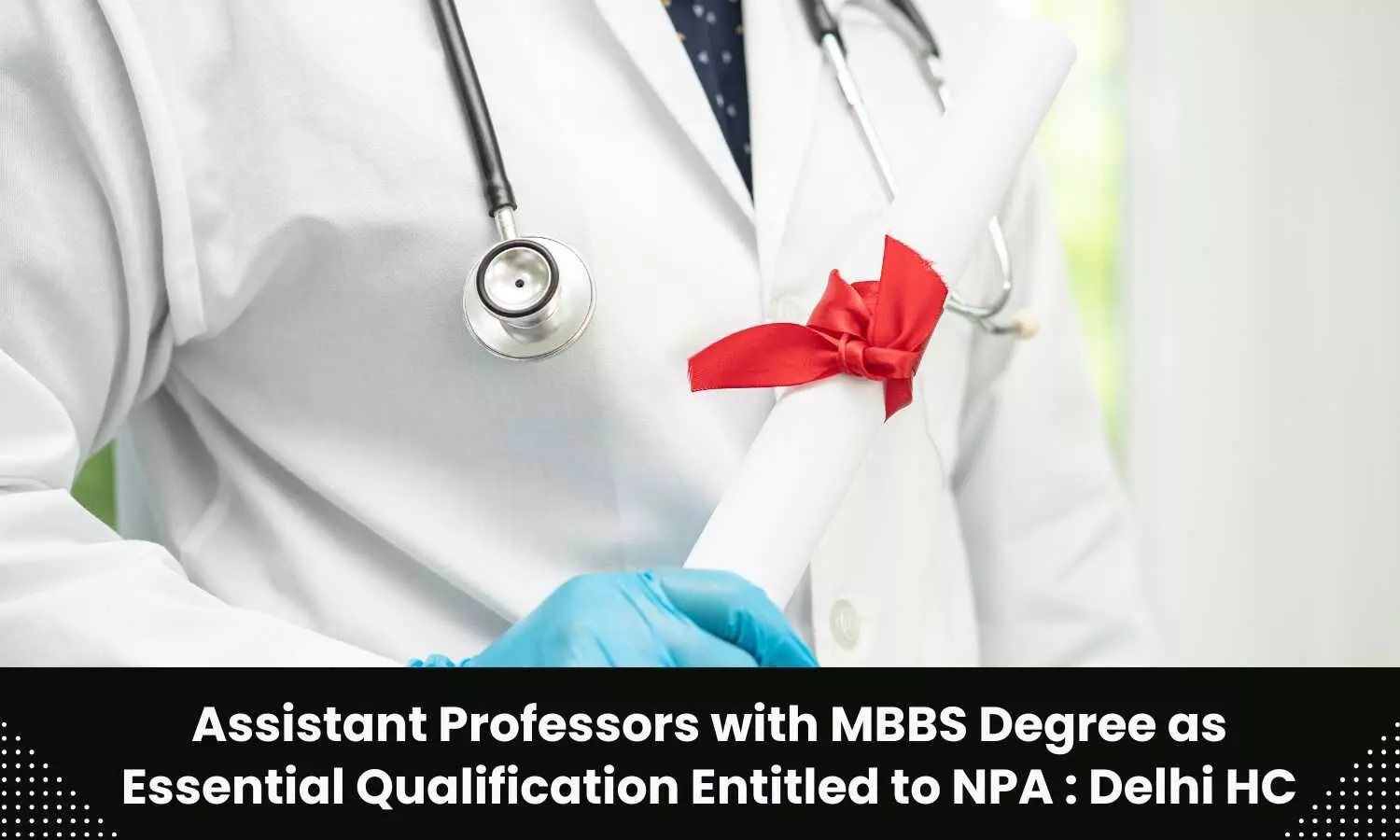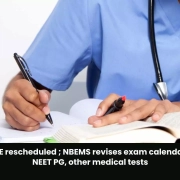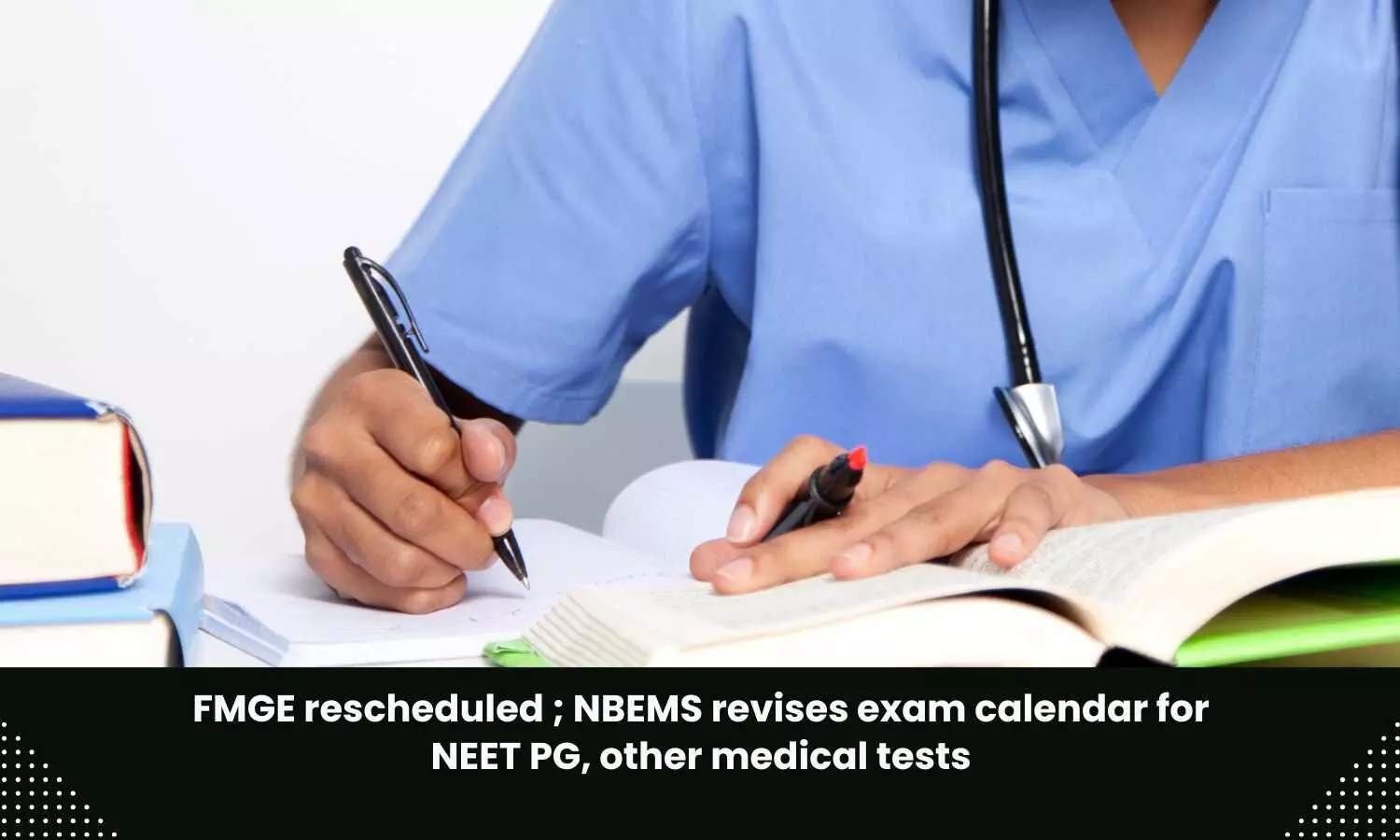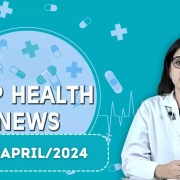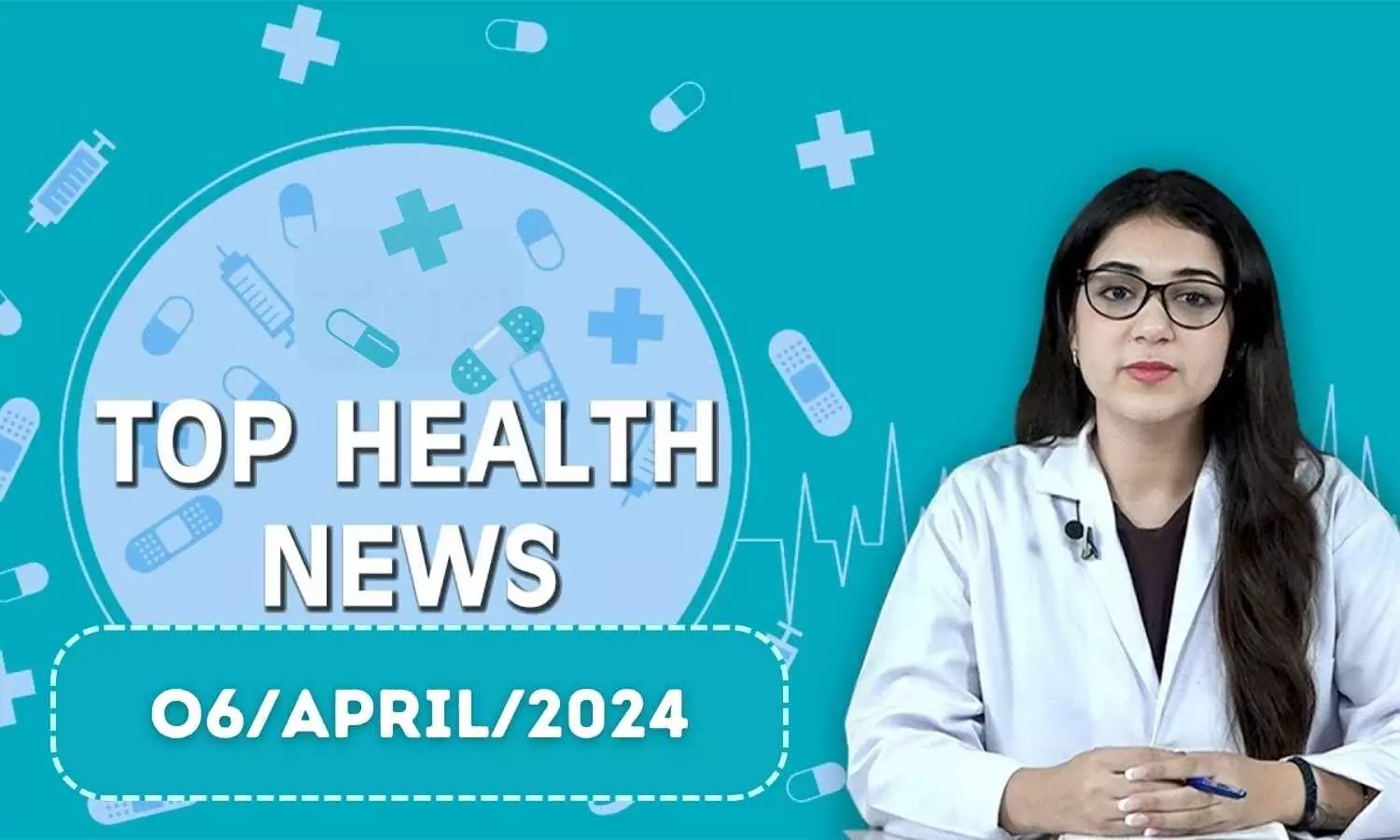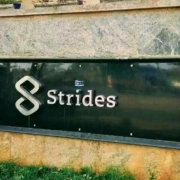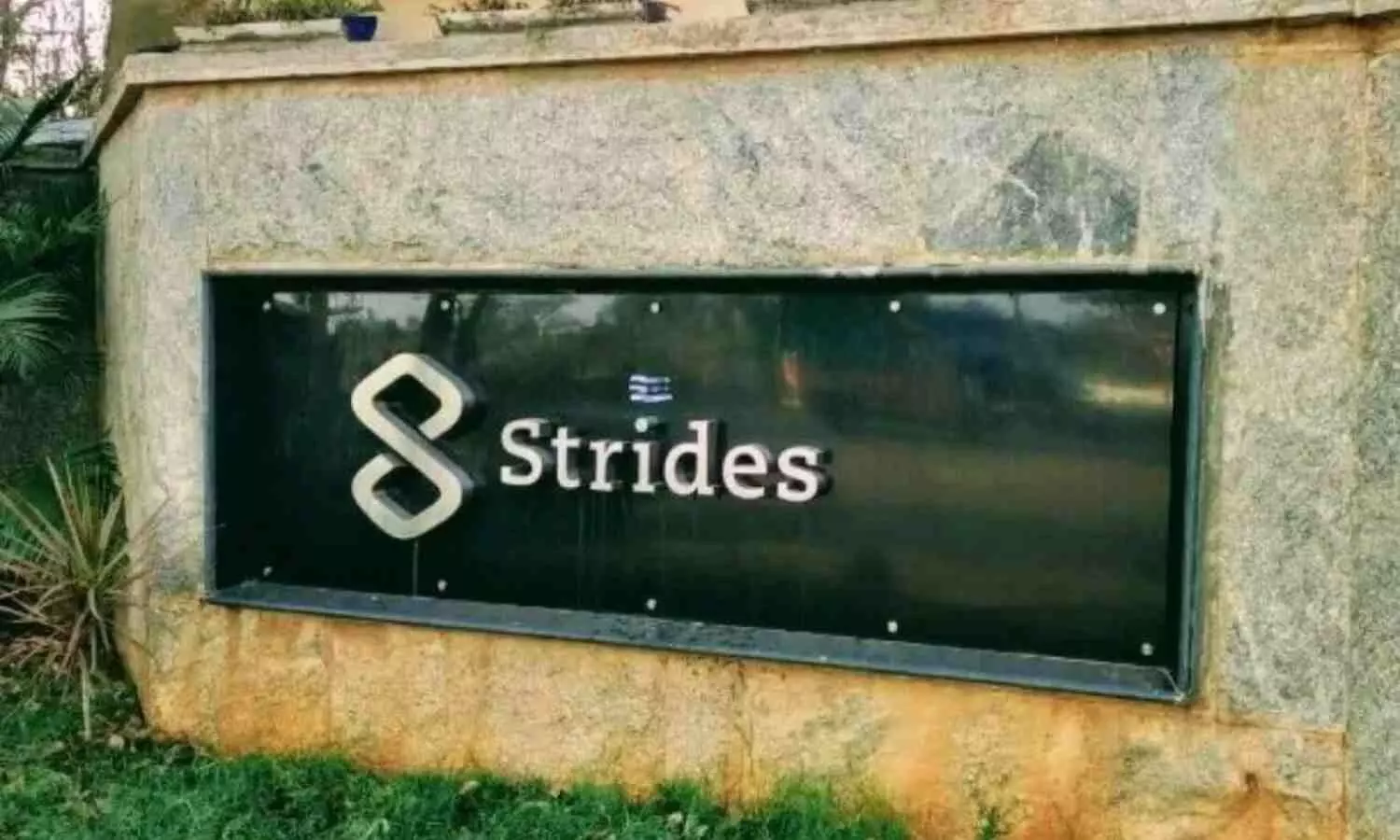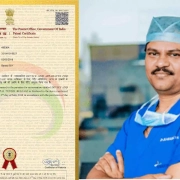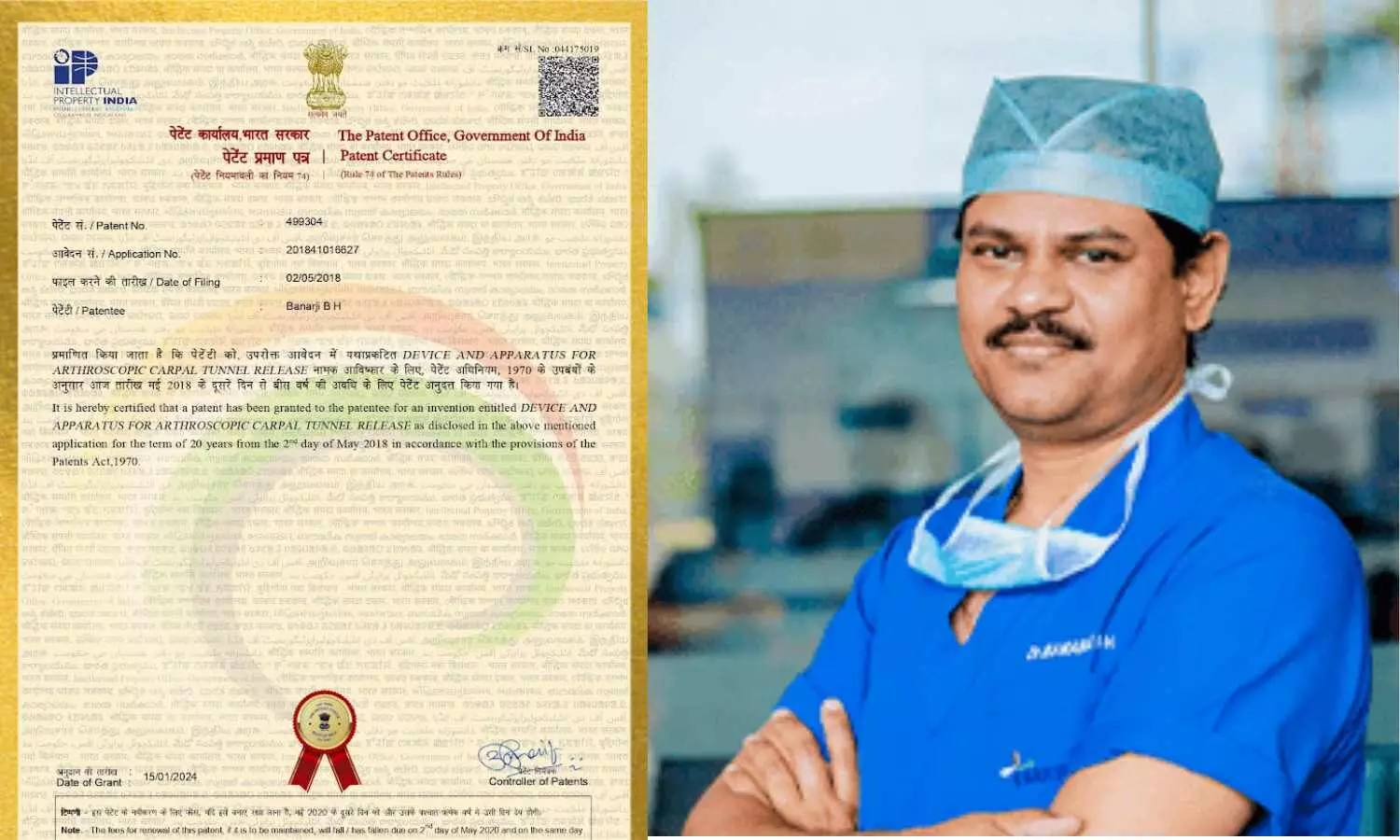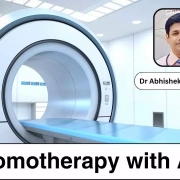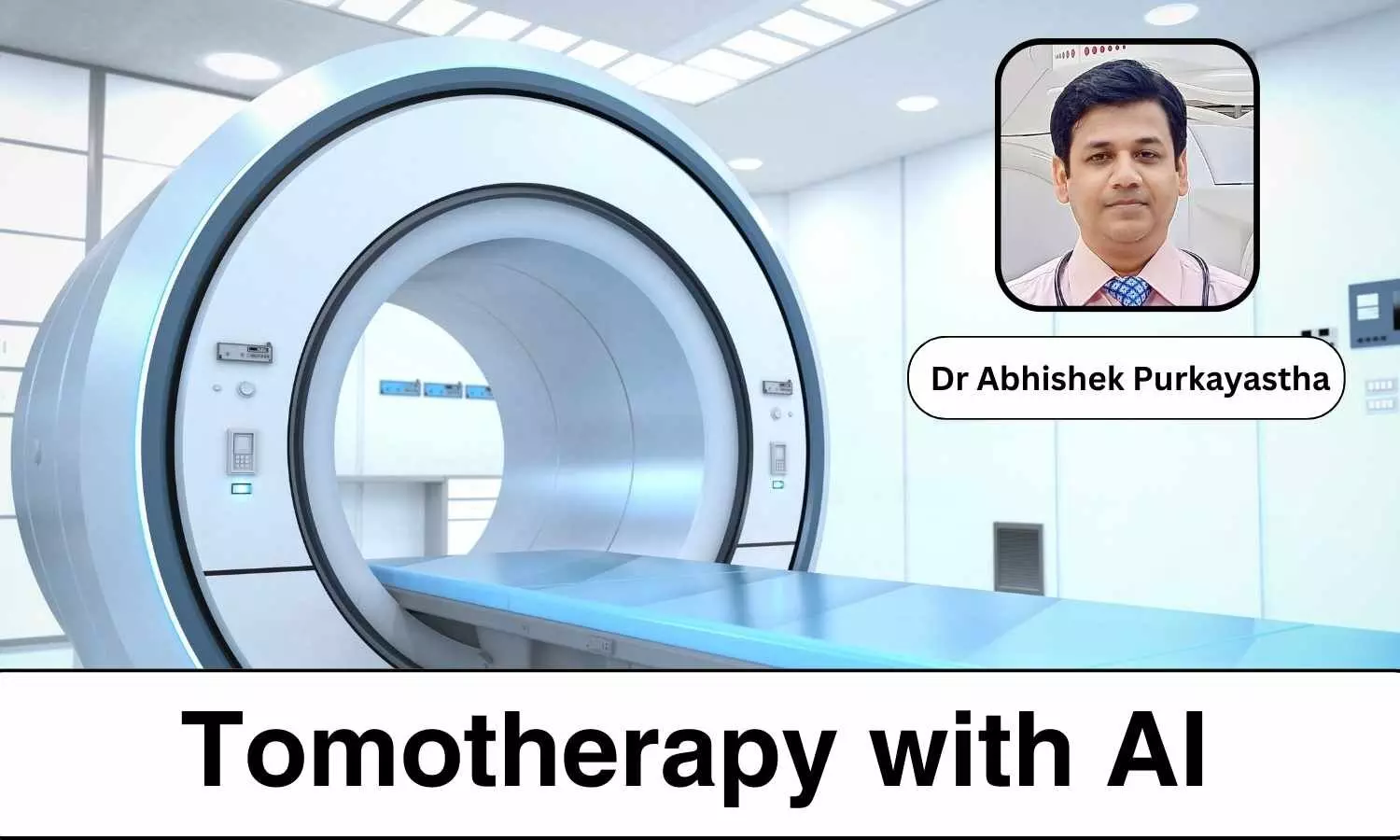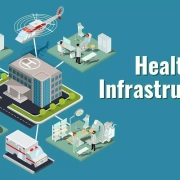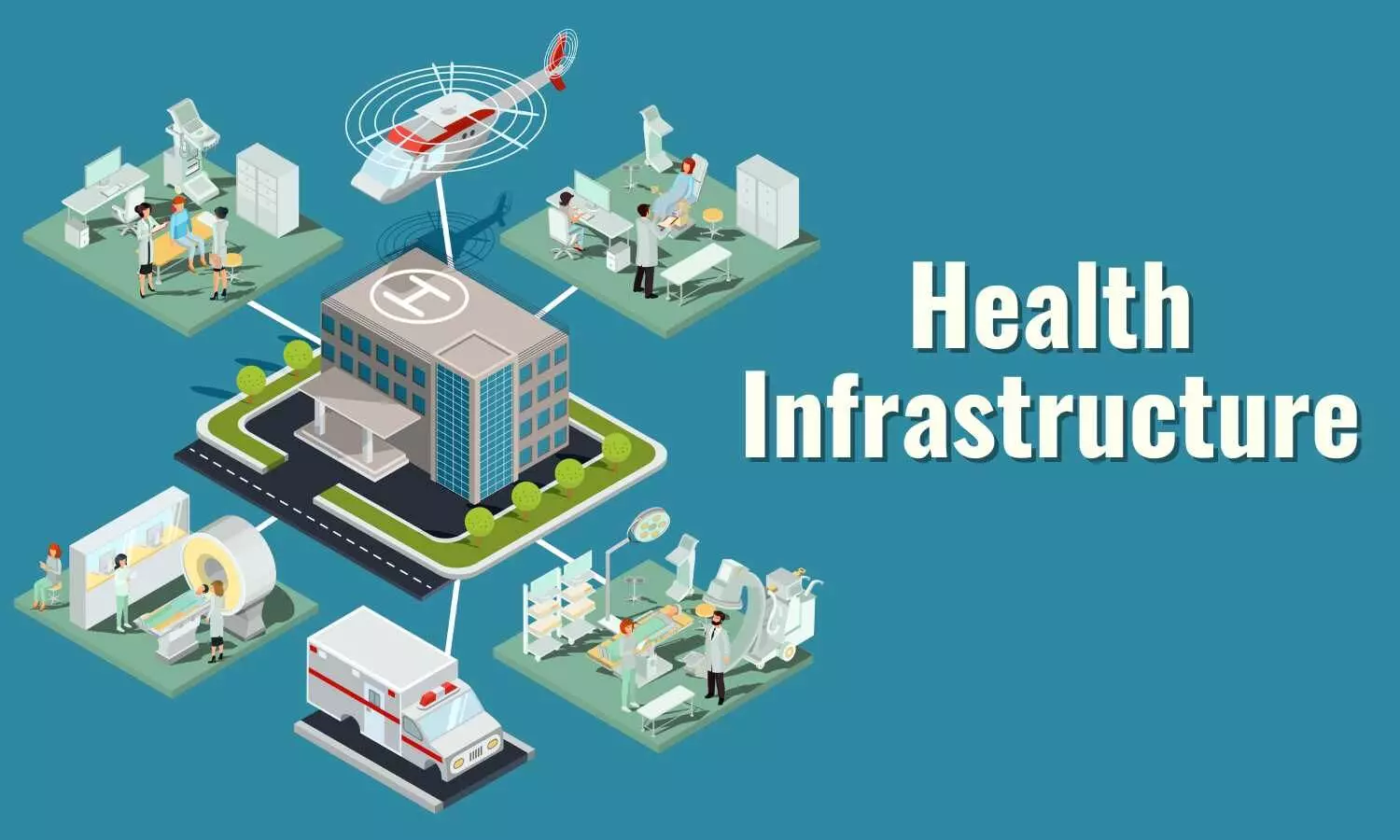
New Delhi: Taking note of around 50% vacancies of specialists in the Delhi-based hospitals, a committee constituted by the Delhi High Court has suggested paying remuneration based on working hours to the visiting consultants to deal with the shortage of specialists.
In its Interim Report, the panel suggested that visiting consultants from the private sector can be hired for 4 hours, 8 hours, 12 hours and for night calls every day.
Opining that such doctors should be paid remuneration plus incentives based on how many hours they work, such visiting consultants should be paid Rs 1.5 lakh plus incentives for 4 hours, Rs 3 lakh plus incentives for 8 hours, Rs 4 lakh plus incentives for 12 hours and Rs 2 lakh plus incentives or on-call basis for night calls, the committee suggested in its report.
As a long-time measure to tackle the scarcity of specialists in Delhi government hospitals, the committee has suggested creating a panel of consultants comprising private practitioners who can cater to government hospitals on a part-time basis. However, the committee recommended ensuring that such specialists were receiving at least 1.5 times more salary or fees than that of a regular employee on weekdays and double on holidays and weekends.
Medical Dialogues had previously reported that earlier this year, expressing displeasure over the “misleading” information provided to it on the functioning of medical equipment in GTB hospital, the Delhi High Court had advised the State to constitute a committee of doctors to examine the hospitals run by the city government to come up with a solution. These directions were issued by the Court while considering a PIL initiated by it on its own in 2017 concerning the issue of the non-availability of ICU beds and ventilator facilities in government hospitals in Delhi.
Also Read:Set up committee to examine state-run hospitals: Delhi HC tells Govt
Consequently, the Delhi HC on February 13 formed a six-member committee of experts to evaluate and improve the medical facilities run by the State Government and Municipal Corporation of Delhi.
The Committee recently submitted its Interim Report and as per the report, there are 1700 sanctioned posts of specialists in 38 hospitals in Delhi. Among these 882 posts are filled and the rest of the 818 posts are still lying vacant.
Reasons for Vacancies of Specialists (Teaching and non-Teaching):
As per the Committee, the reasons why around 50% posts of specialists are lying vacant in Delhi hospitals are as follows:
(i) Delayed recruitment by UPSC and preferential posting at Central Government Hospitals.
(ii) Proposal of creation of additional posts is rejected on the ground that the existing vacancies are not filled up.
(iii) If any new facility is planned, the new posts are not allowed by administrative reforms department which considers all doctors in one category (JR/SR/Faculty) and also irrespective of specialization. In addition, the requirement of staff is calculated on the basis of bed ratio.
(iv) Due to lack of modern equipment/facilities/OT time, specialists prefer to work in private hospitals to gain experience.
(v) Posting at areas far away from their residence.
Measures Recommended by the Delhi HC Committee:
In order to tackle the scarcity of specialists in Delhi hospitals, the committee has recommended both immediate measures to implement them within 30 days and also long term measures as a solution to the problem.
Immediate Measures (30 days):
1. The committee has recommended to utilise the services of consultants from the private sector on a contractual basis. Visiting consultants such as Anesthetist, Gynecologist, Pediatrician, Orthopaedician, General Surgeon, Neurosurgeon, any other specialist as per the need of a given hospital can be hired through contracts, suggested the panel.
“The consultants can be hired/ empanelled in 4 categories, as per their seniority, and as per the prevalent practices in the private sector,” the panel recommended in its interim report.
The committee also suggested that the visiting consultants can be hired for 4 hours, 8 hours, 12 hours and for night calls every day and further mentioned that they should be paid Rs 1.5 lakh plus incentives for 4 hours, Rs 3 lakh plus incentives for 8 hours, Rs 4 lakh plus incentives for 12 hours, and Rs 2 lakh plus incentive or on-call basis for Night Call.
“Another alternative is to have a panel of consultants in different specialties available at every hospital, drawn from the vicinity. A roster can be prepared to attend to the patients between them and the payment should be on per- patient or per-procedure-basis. The honorarium to be calculated in accordance with the above recommendation,” the panel mentioned in its report.
“The consultants should be empaneled on the basis of their qualification and requisite experience as defined by the NMC, the quality of service provided should be at par with the standard of care prescribed,” it further added.
2. Another immediate measure suggested by the committee is to give autonomy to the respective hospitals to fill up the vacant posts on adhoc/contractual basis. The Committee suggested that to attract doctors on adhoc/contractual basis, the emoluments and other benefits for the contractual employees should be at par with the regular appointments.
“Filling these posts will be easier if the salary is 25% more than that of a regular employee,” suggested the HC Committee.
3. Considering the vacancy of specialists, the panel also suggested offering Telemedicine services by specialists from a teaching hospital to cater to patients. It has recommended establishing a system of telemedicine for consultation and mentorship, to strengthen the quality of service and infuse confidence in smaller hospitals.
Long Term Measures:
Among the long-term measures to tackle the huge shortage of specialists in the Delhi Government hospitals, the HC Committee has suggested the following measures:
1. The panel recommended creating the Delhi Health Authority to create a panel of consultants comprising of private practitioners who can provide their services in Delhi Govt. Hospitals on a part-time basis. It suggested commencing this practice by identifying consultants from the specialists including Radiology, Anaesthesia, Neurosurgery, and Intensive Care.
“The salary or fees to these specialists should be fixed at a rate which is equivalent to at least 1.5 times that of a regular employee on weekdays and double on holidays and weekends. For example, if a regular Professor’s salary is Rs. 10000/ day (i.e. Rs. 1250/ hour considering 8 hours duty per day}, the visiting consultant should be paid approximately Rs. 1900/hour or equivalent thereof for a surgery I procedure. The details can be worked out,” the HC committee suggested in its interim report.
2. Among other measures, the committee recommended setting up Telemedicine facilities, especially in the field of Radiology (teleradiology), where the specialist can provide services to multiple facilities, without having to visit them physically. For this, the committee opined that additional posts will required to be created at the tertiary care centres.
3. The panel recommended that the administrative reforms department to be more receptive regarding organizational hierarchy in the Medical Profession.
4. It also suggested to provide for a place of posting near the residence, as much as possible. According to the committee, posting near the residence will improve patient care as doctors need to visit hospitals frequently in odd hours.
5. Further, the committee has suggested providing Incentives as per the criteria for the quantity/quality of services provided.
6. It also recommended to modernize the infrastructure or equipment.
7. Finally, it recommended strictly complying with the referral system for tertiary care hospitals.
Also Read: Improvement of health infrastructure at Delhi Govt, MCD Hospitals: HC sets up 6-member committee
